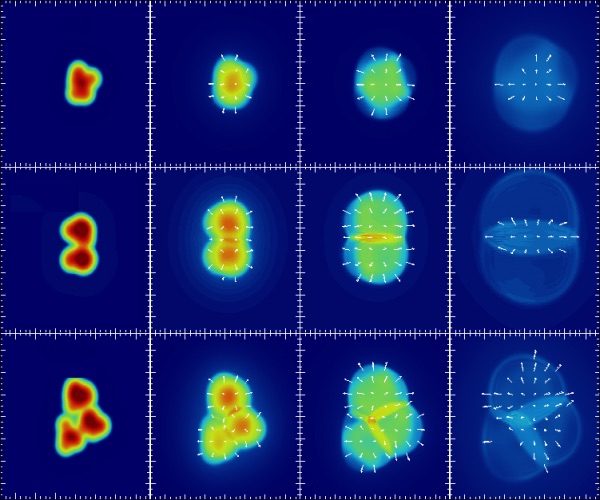Yazata
Valued Senior Member
I agree.
However at this point it may be worth re-iterating that the reasons why a number of religions propose a personal god have little or nothing to do with first cause or any other Science-related argument. They are based on the teaching and example of various historical, or at least arguably historical, figures and are grounded in literature, ritual, music, tradition and personal aesthetic and emotional experience. They have far more to do with the humanities than with science and their real purpose is to guide individual people in living their lives. The thing that irritates me about Dawkins and Krauss is their pig-headed insistence that religion is about trying to answer questions about the cosmos and therefore if they can provide answer to that via science, it destroys religion. That's just balls.
Since this is supposed to be the forum for scholarly consideration of religion, I'll quote this from Wikipedia about the ancient Roman philosopher Varro:
"Marcus Terentius Varro in his (lost) Antiquitates rerum humanarum et divinarum established a distinction between three kinds of theology: civil (political) (theologia civilis), natural (physical) (theologia naturalis) and mythical (theologia mythica). The theologians of civil theology are "the people", asking how the gods relate to daily life and the state (imperial cult). The theologians of natural theology are the philosophers, asking about the nature of the gods, and the theologians of mythical theology are the poets, crafting mythology."
Those distinctions are still pretty much in use. Today the big distinction in the study of religion is between what are termed 'natural theology' and 'revealed theology'.
Natural theology is concerned with what we can (supposedly) know about God through examination of the natural world. It's the province of the traditional theological arguments: the design argument, the first cause argument and so on. The recent 'fine tuning' arguments belong here. Natural theology kind of reduces God to a set of metaphysical functions. (As for me, I'm an agnostic regarding most of natural theology and an atheist regarding the rest.)
Revealed theology is concerned with what (supposedly) can only be known through revelation. It includes things like Christ's sacrifice on the cross, God's revelation in the Quran and so on. (As for me, I'm an atheist regarding all revealed theology.)
And there's a vague and heterogeneous category that we can call Popular religion, the religion of how people actually believe and behave out on the streets. It may have little to do with philosophical thought or with orthodox religious traditions or revelations. It probably extends to belief in UFO aliens, ghost hauntings, spiritualism and similar things. (I have some sympathy with this one but don't really share it, beyond a tremendous sense of profound mystery that constantly surrounds me at every moment. That's what has always attracted me to philosophy.)
Historically, Deism is probably best described as doubt about revealed theology with continued adherence to natural theology. Once the Protestant reformation ushered in an era of skepticism about many of the fundamentals of Catholic belief (Mary, the Saints...) which were central to popular religiosity, all in the name of what's written in the Bible, the genie (of modernity) was out of the bottle. The next generation of thinkers started thinking skeptically about the Bible as well. So the more avant-garde European intellectuals entered into a period when natural theology was emphasized. (We see it in the writings of the British empiricists, the 'philosophes' and the 'Age of Reason' in general.) That's why Deism is often said to be the idea that God created the universe (the first-cause and especially the design argument seemed unassailable) but then let it operate according to its own inherent "laws" (which opened up space for the new Scientific Revolution and its Newtonian mechanics).
I think that Dawkins is basically right that Darwin was perceived as knocking the support out from under the design argument, previously natural theology's strongest. It's part of why we see Deism disappearing in the 19th century, to be replaced by full-frontal Atheism. (But I think that Dawkins is smoking crack if he thinks that Krauss has the same historical importance today.)
Last edited:

